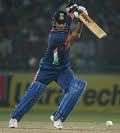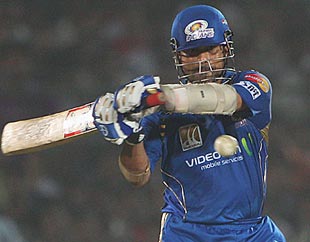 Sachin Tendulkar, at the age of 37, re-wrote what was possible in 20 20 Cricket in the 2010 Indian Premier League. Opening the batting and leading the Mumbai Indians from the front, he had a strike rate of 132 and a batting average of 47.
Sachin Tendulkar, at the age of 37, re-wrote what was possible in 20 20 Cricket in the 2010 Indian Premier League. Opening the batting and leading the Mumbai Indians from the front, he had a strike rate of 132 and a batting average of 47.
He bankrolled them to the final, only for the side to come second to the Chennai Superkings.
Sachin was the 2010 IPL’s highest run scorer, followed by another mature batter, Jacque Kallis, age 34, who comes in with similar stats but a lower strike rate of 115.
Tendulkar has got better the longer he has played 20 20 cricket and improved with each IPL. The jump over the years is quite remarkable from the first IPL in 2007, where Tendulkar’s batting ave was 31 and strike rate 106.
This article isn’t about Tendulkar’s batting stats, although they tell their own story, but about the ability to improve your game at any age.
20 20 Cricket has been branded as the young mans game, a game of speed and verve, so how is it that Sachin Tendulkar has got better as time has gone by?
In the last month in the India – Australia series he almost single handedly beat the Australians into submission with a batting performance of controlled brilliance.
Tendulkar’s double hundred in the Bangalore Test setting up the Test and series victory.
Sachin Tendulkar IPL 2010
What Separates Sachin Tendulkar ?
What really separates Sachin from the other batters of his generation is his strategic thinking skills.
Gary Kirsten, the Indian Coach calls Sachin the ‘Professor of Batting’.
Sachin asks the right questions consistently, what are they you might ask?
What is he doing that the rest of the pack aren’t?
What is he doing that all batters of every age can learn from?
The key questions for all cricketers are What do I want to achieve ? and How am I going to do it ?
These two key questions are really about setting goals, whether they be long, medium or short term goals.
Amazingly many cricketers don’t ask these questions of themselves. In my experience in coaching, all players want to do well, but their goals are vague and they haven’t spent the time nor the energy in breaking them down to work out how to go about it. They roll from one game to the next and ‘hope’ that they get it right.
I have seen this at every level of the game, from schools and club cricketers to international players
Most cricketers play at the level of their talent and not much more. We each have a level to our talent and as the old saying goes, ‘talent is never enough’.
Talent is the point of departure, that is what you start with. Your basic talent can be enhanced many times, challenged, grown, developed so that you play way beyond where you initially began.
For many players there is minimal growth in their game because they don’t consciously use their brains to get better.
Sachin Tendulkar’s gift isn’t so much his physical ability to hit a cricket ball, but rather his ability to use his brain and conscious mind to ask the right questions about what he wants to achieve and how he is going to go about it … then he goes to work.
The more you ask these questions and seek the answers to your performance questions, the more connections the brain makes in seeking to solve your batting challenges.
Sachin Tendulkar’s Genius
 The author Malcom Gladwell in his book Outliers, has come up with the number of hours he thinks it takes to make a genius.
The author Malcom Gladwell in his book Outliers, has come up with the number of hours he thinks it takes to make a genius.
He doesn’t say that his examples across a range of fields were born genius’s, rather that the length of time that they consistently focused on their goals allowed their brains to eventually evolve to a stage where we now acknowledge them as genius’s.
His examples range from the Beatles in music to Bill Gates in computing.
How many hours ? How many hours ? Okay the answer is 10,000 hours to make a genius according to Gladwell.
So this really boils down to the brains’ ability to choose specific goals and to solve how it is going to achieve them.
Sachin Tendulkar’s genius is his mental ability to break his goals down into bite size chunks and go to work on them. There have been and still are many batters who hit the ball as well as Tendulkar. So it isn’t all about the physical gift.
What science now tells us, specifically the field of neuroscience which studies the brain, is that the brain can begin to make new connections or wiring within 24 hours of us beginning to pay attention (focus)to a new goal.
The brain adapts when it is given a new stimulus and it can do this at any age. This is called neural plasticity, this name describes the brain’s plastic like ability to develop new ‘wiring’ and connections to get better in any area of human endeavour.
Before you get scared off by the science and the strange terms and wonder what all this has to do with cricket, ponder for a moment that some of the biggest advances in Motorsport and Grand Prix racing in particular have been in neuroscience, how to optimise the driver’s brain to perform better at greater speeds.
The brain can begin to generate new behaviour, and what we now know is that what went before in terms of how we played, batted, bowled or fielded isn’t that important, because the brain can design a new performance program given the right information.
What an incredible gift and we all have it !
So Tendulkar’s exceptional and continued growth is brain driven.
Paying attention is the key, the focus has to be held long enough for the ‘wiring’ to become ‘strong’ and ‘stable’, if we don’t pay attention long enough the brain can’t make the connections.
So coming back to your goal and working on it over and over is critical, there also needs to be a constant process of evaluation of the results you are getting from your actions … ‘ Am I on track? ‘, ‘Where am I in relationship to my goal ?’
Then making the adjustments to get back on the path of goal orientation when you are off track.
One of the keys here is to keep track of what works and to keep building on it. Paying attention to the learning, the insights and the ‘aha’ moments allows you to wire them in and then move your game up to the next level.
This can be as simple as writing down your goals and going to work on them at training, making a note after training of what went well and what you learnt, so that you can consolidate that learning next time you practice.
South Africa’s Captain, Graeme Smith takes the trouble to write down learnings and insights from his practice and play, couldn’t you?
Everyone who plays can emulate Tendulkar in consistently getting better, this is really about the ability to learn and Tendulkar is top of the class.
Sachin specifically has two ways he can work on this:
Firstly Sachin can use his conscious mind and prioritise what the goals and challenges are for each unique competition he plays in, then break this down into the questions posed by the different attacks and conditions.
He can then set up practice drills to work on match situations and specific challenges that those bowlers and conditions will present.
This is using the conscious minds ability to break down the bigger goals into the bite size chunks that he needs to work on to achieve his strategic objectives.
The second way is to use his subconscious mind utilising visualization and imagery to create a ‘synthetic’ game. The more Tendulkar practices this ‘synthetic’ game the more the subconscious mind wires it in.
This is an incredibly powerful way of conditioning the brain for performance.
There is nothing kooky about this, we just practice in our imagination what we want to make happen in game time. Its natural and fun.
Performance breathing skills and relaxation are the keys to the door of your getting your conscious mind quiet to practice visualization.
So now you have some practice ideas, happy batting !
One last question to ponder, where to now for Tendulkar?
The great batting master Jack Hobbs scored half of his 199 hundreds after the age of 40 …
I shall leave that question hanging …
Back from Sachin Tendulkar To 20 20 Cricket
Back to Cricketlab From 20 20 Cricket

About Richard Pybus
I'm Richard Pybus, I've coached Pakistan, Bangladesh, Middlesex, Titans and the Cape Cobras in South Africa and the goal of this site is to help you to play winning cricket.
